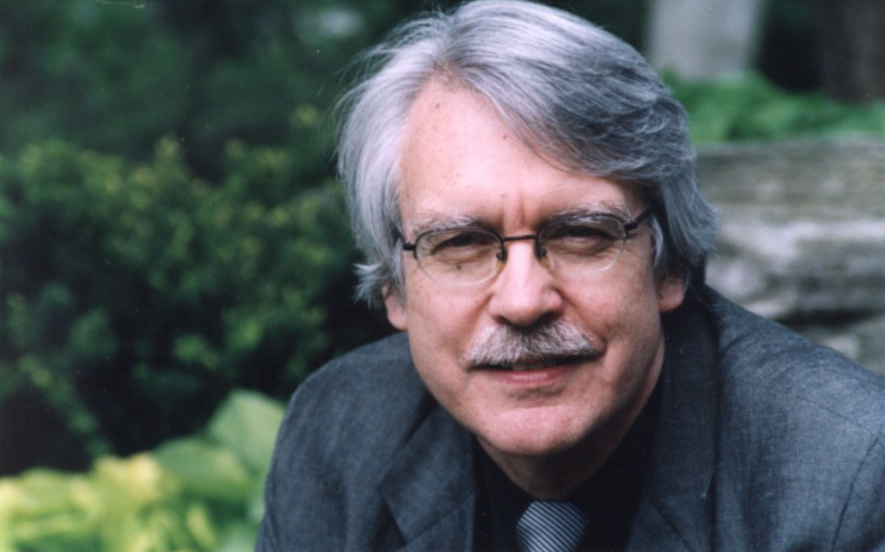Harbison’s tribute closes an anniversary season of Tanglewood premieres

John Harbison's "Koussevitzky Said" was given its world premiere Sunday at the Tanglewood Festival.
“The next Beethoven will from Colorado come,” the chorus proclaims at the beginning of Koussevitzky Said, John Harbison’s “choral scherzo with orchestra,” which received its world premiere Sunday afternoon at Tanglewood.
Commissioned for Tanglewood’s 75th anniversary celebrations, Koussevitzky Said is a six-minute setting of six off-the-cuff remarks by Serge Koussevitzky. It stood modestly shoulder-to-shoulder with Beethoven’s Ninth Symphony, the traditional closer, in the Boston Symphony Orchestra’s final concert of its summer season.
In the continuing absence of a music director, Rafael Frühbeck de Burgos, a BSO favorite as a guest, conducted the BSO and Tanglewood Festival Chorus with authority, although he looked frail and had obviously been ailing.
After starting out with some of the more oratorical utterances of the Tanglewood founder and former BSO director, Harbison suffered what he describes as “a discouraging overdose of uplift,” particularly in relation to the monumental work to follow his. He settled for an occasional piece that would recall Koussevitzky’s more informal,
avuncular side.
He retained Koussevitzky’s busted syntax but omitted the Old World accent (“we will” replaces “ve vill”). Some of the remarks are funny, such as (in rehearsal) “If not in tune, it smells of office, as if price five cents.”
But the opening line, reflecting Koussevitzky’s belief in the future of American music and culture during his BSO tenure (1924-1949), had an unexpected personal resonance. Harbison, who is based at MIT during the winter and heads Tanglewood’s student composition program during the summer, is likely the kind of composer Koussevitzky had in mind. Harbison is, in fact, the BSO’s most-commissioned contemporary composer. Over the last two subscription seasons, the BSO completed a performance cycle of his six symphonies, three of which – including the last two – were BSO commissions.
Koussevitzky Said is in three sections. The first and last are strongly contrapuntal and sometimes Stravinsky-like in their motoric rhythms. The middle section (“I am an American citizen, but I still love Russia”) is more declamatory.
On first hearing, it seemed Harbison had tried to cram too much material into a six-minute package. With a chorus of 130 voices singing ungrammatical texts in contending lines, often at exultant volume, words and events went by too fast to make a clear impression. Expanded, the piece might make a nifty cantata for the former director of Boston’s Cantata Singers.
Koussevitzky Said was the last of seven anniversary commissions to be premiered this summer. Three were chamber works for student performance, but two other Boston composers of renown and long BSO/Tanglewood association — Gunther Schuller and Michael Gandolfi — were also chosen for orchestral works.
The work of greatest substance was Schuller’s 11-minute Dreamscape, literally dictated to him, he says, by a dream. Ives-like jokes at the beginning lead to a finale that dares to depict evolution on earth. The student Tanglewood Music Center Orchestra performed the work twice over the course of this summer season.
Of the BSO performances, Gandolfi was represented by Night Train to Perugia, a short, fast ride that made the expected choo-choo sounds but also, subliminally, evoked the subterranean neutrino accelerator that passes through the Italian city. André Previn contributed Music for Boston, a 16-minute piece redolent of rosy romance in an old movie.
In addition to the Harbison-Beethoven program, Frühbeck conducted a Saturday night concert performance of Falla’s La vida breve, a Spanish verismo opera portraying a gypsy woman’s doomed love. If that rings a bell for another doomed gypsy heroine, Falla’s unrelieved bleakness of sound and vision puts him in a different league. The BSO and a fine cast headed by Nancy Fabiola Herrera as the luckless Salud labored heroically in the cause.
The fervent soloists in the season-closing Beethoven Ninth were Leah Crocetto, Meredith Arwady, Frank Lopardo and John Relyea. The final moments of glory belonged, as always, to John Oliver’s festival chorus.
Posted in Performances




